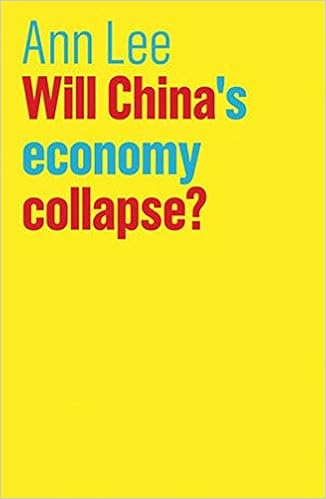 |
| Amazon link |
The Amazon Vine system seems to be running down. Fewer and fewer interesting items appear in my input queue. But Ann Lee's recent short book seems to be an exception.
Professor Lee is a somewhat-typical member of the global elite. She was educated at U.C. Berkeley, Princeton University and Harvard Business School (1995). After working for two investments banks, she became a hedge fund partner and a trader in credit derivatives. In 2007-2008 she was a visiting professor at Peking University.
BTW, whenever an article or book has a question in the title, the answer is always "No".
---
I'm interested in the political and economic evolution of China. Part of that is the global significance thing, but the underlying dynamics are equally intriguing. We observe a centrally-planned economy belatedly - and apparently - transitioning to capitalism.
Is China even capitalist? Most economists would say yes, but Michael Roberts on his blog has been steadfastly contrarian.
It would help to have a conceptual framework to assess Ann Lee's thinking.
---
 |
| Amazon link |
I turn to János Kornai, the noted Hungarian economist who has written extensively on the experience of the bureaucratic-socialist states, both in their operational dysfunction and their subsequent collapse.
At the heart of Kornai's critique of socialist (centrally-planned) economies is the notion of soft budget constraints leading to what he calls the shortage economy. Has China found a way round these structural problems?
The Chinese leadership has watched the Eastern-European and Russian experiences with care and has plainly learned something from the outcomes. So Andrew Batson considers whether Kornai's account still holds true.
Update: Here's my Ann Lee review.
No comments:
Post a Comment
Comments are moderated. Keep it polite and no gratuitous links to your business website - we're not a billboard here.